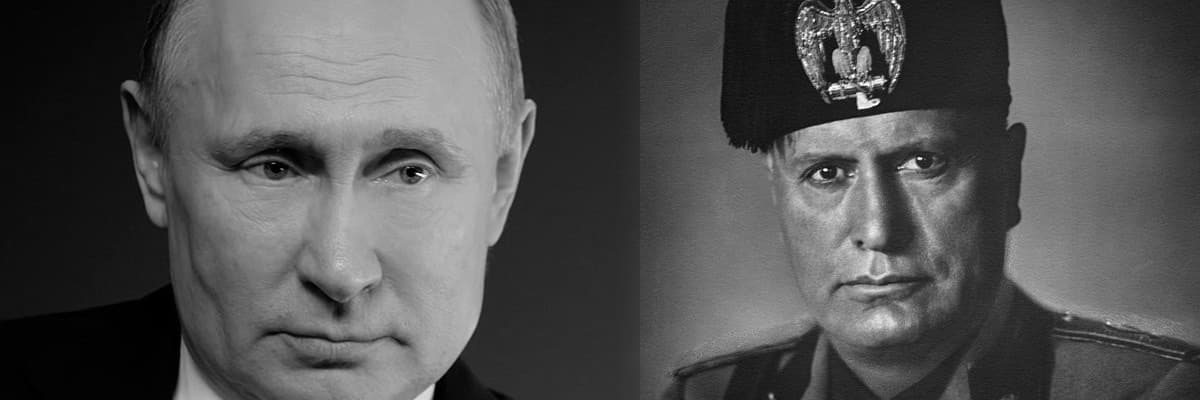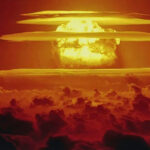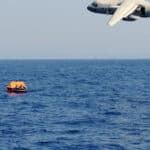by Fabio Bozzo
There are two characters, one historical and one living, who at first glance share practically nothing. I am talking about Benito Mussolini and Vladimir Putin. It is useless to list the differences between the two, as they are so obvious that they do not need any description. There are, however, also similarities that, as the weeks go by, appear more and more interesting and, from a certain point of view, disturbing.
Let's start from the premise that these are two extraordinary men, one of whom made history and the other is still making it. This consideration, banal but necessary, goes beyond any sympathy or antipathy that one may have towards the statesmen in question. Let's try now, going through history and current events, to understand what are the similarities between the two.
Two leaders emerged from chaos
Both had a tough youth, as Mussolini made his bones in a socialist party that at the time was on the verge of being revolutionary Bolshevik, while Putin was formed by the severe apprenticeship in the KGB. Two serious people, who after the years of training lived in first person two huge tragedies that upset their countries and the whole world: Mussolini the First World War, Putin the collapse of the communist bloc and the end of the Cold War. From these events both Russia and Italy emerged economically shattered and politically unstable.
Certainly for our country, the conflict ended with a victory and a territorial expansion, but the human and financial price did not justify the gamble of 1915. Therefore, the rhetoric of the "mutilated victory" began, while the social unrest convinced the communists to attempt the revolution that later the national historiography (with one of the classic examples of cunning Italian hypocrisy) has derubricated as "Red Biennium". From this chaos emerged the strong man, Mussolini. The future Duce created a party with an ideology confusedly straddling the extreme right and the extreme left, and then presented himself as the defender of the established order made more original by a revolutionary rhetoric. A strategy at the same time ingenious, risky and unscrupulous that brought him to power with an electoral strength of second level.
Instead, Putin saw his world disappear in geopolitical shame and humiliation at Christmas 1991. The fragile Russian democracy created by Yeltsin lasted ten years, but in the end the disastrous economy (the result of 70 years of communism that can not be erased in a flash) created such a sense of frustration and widespread poverty that, even in Russia, people began to desire the strong man. As in Italy, the future dictator was not brought to power by the people. In our country Mussolini was appointed Prime Minister by a maneuver of the parties and the monarchy, while in Russia it was the oligarchs who convinced a refractory Yeltsin to appoint Putin as his successor. Both of our protagonists were adept at being underestimated and, within a few years, transformed their constitutional leadership into a de facto dictatorship centered on their person.
Not even the concept of power is excessively different, since Mussolini's philosophy had a strong ideological character, but Fascism was an ideology divided into various and often contradictory currents; therefore, in the end, everything revolved around the figure of the Duce. Putin, living in a post-ideological era, did not even need to devise his own political creed, since it was enough for him to focus on the age-old Russian nationalism.
Successes and wearing out
Once in power, both Mussolini and Putin had to manage and rebuild two exhausted countries. Both, let's be honest, were relatively successful in the endeavor. However, this success hid under the new paint enormous structural problems, hidden with some objective achievements and a lot of propaganda. The latter was essentially based on the national redemption due to the two leaders, on the boast of a presumed military power and on a heated nationalism. At the international level both characters have started with prudence and with a relative closeness to the western democracies, a bit because forced by the disparity of forces and a bit for the absence of particular international contrasts.
This situation went on for both Mussolini and Putin for about fifteen years, during which both suffered three identical problems.
The first was physical aging. Power is wearing on anyone, and absolute power imposes grueling schedules (especially for two alpha males who didn't particularly spare themselves even in the pleasures of life).
The second problem was the consumption by power. The fascist regime in 1935 and the Putin regime in 2014 had essentially won across the board. It was precisely this victory that had robbed them of their initial impetus: by then they had nothing more to say or offer beyond what they had already said and offered. Lacking political innovation and with the real economy less buoyant than they wanted people to believe, inevitably, for both regimes the first cracks in the consensus began (a consensus that, to be clear, was majority in both populations).
It can be said that these two evils were inevitable for both characters, as time marches on inexorably for all of us.
The grabbed spotlight
The third problem, on the other hand, struck them as a historical nemesis in an incredibly similar way. That difficulty came from geopolitics. Both Mussolini and Putin, albeit with ups and downs, in the first part of their respective dictatorships related in an all in all positive way with the West, also because strong of their status (true or presumed) of "restored powers" and "good dictatorships". Until, for both, a new power emerged, much stronger and more unscrupulous than theirs. We are obviously talking about Nazi Germany on the neck of Mussolini and imperial-communist China on that of Putin. These two powers in a short time have stolen the scene to the two leaders in question, focusing the international hopes and fears on them. In short, the two no longer young dictators were becoming respected comprimarios.
We come then to the last and most disturbing similarities between the two characters, who have given similar answers to similar problems. Both have tried to keep themselves equidistant from the West and from the stronger dictatorship, even trying to become the needle of the geopolitical scale. Instead, both found themselves essentially isolated, although the relative strength of Italy and Russia did not call into question their independence. With the economy not exactly flourishing, their age no longer young, civil society beginning to ask too many questions and a negative geopolitical situation, the two statesmen began to kick. One triggered the Ethiopian War, the other the occupation of Crimea. The two scenarios have incomparable genesis and characteristics, but their results were identical: an initial nationalist intoxication, economic sanctions that revealed many bluffs of the two regimes, distancing of Italy and Russia from the Western democracies and their fall into the deadly embrace of the new "majority leaders", Hitler for Mussolini and Xi Jinping for Putin.
The point of no return
At this point our two protagonists had passed the point of no return. It's hard to say if they understood it, but by now the die was cast. In a few years after the above mentioned "red lines" the two statesmen have become more and more dependent on their respective false friends, while the two economies showed more and more cracks. Also this time the answer was the same: a new and more risky war. If in the Ethiopia-Crimea double scenario Mussolini had much less justification than Putin for the adventure, in the Second World War-Invasion of Ukraine the situation is reversed. But the justifications don't change the result: two wars that were supposed to be quick and easy turned into the one we have studied and the one we are seeing today.
Dictatorships, lacking the electoral safety valve, are forced to positive performance. If this is lacking, discontent grows, as does the repression that creates new discontent. Almost always the result is the overthrow of the regime. Putin's challenge to the West is closely reminiscent of Mussolini's entry into World War II and, in the particular of the two contexts, the invasion of Ukraine is proving to be for the Russian what the Greek campaign was for the Italian.
Putin on the way to Dongo?
The Duce's defeats led to the coup (de facto though not de jure) that deposed him. The difficulties that arose with the stalemate in Ukraine are making a similar event plausible in Moscow.
Is a new von Stauffenberg preparing to strike? Or will we see a Putin shot at the Mongolian border?
Graduated in History with modern and contemporary majors at the University of Genoa. Essayist, he is author of Ucraina in fiamme. Le radici di una crisi annunciata (2016), Dal Regno Unito alla Brexit (2017), Scosse d'assestamento. "Piccoli" conflitti dopo la Grande Guerra (2020) and Da Pontida a Roma. Storia della Lega (2020, with preface by Matteo Salvini)









La Cina comunque, a dispetto di falce e martello, tende più verso il fascismo che il comunismo.
In Cina non mi pare ci sia la distribuzione forzata della ricchezza (ovvero egual distribuzione dela miseria tipo unione sovietica, Cuba, Venezuela e Corea del nord, o anche la Cina maoista), ed è piuttosto capitalista.
Il fascismo comunque, come il comunismo, è figlio del socialismo.
Concordo essenzialmente su tutto.
Condivido analisi e argomentazioni: Spero che, qualora tutto finisca per il meglio (Putin assassinato al Cremlino da qualche militare o scagnozzo FSB in cerca di redenzione o riverginamento, con la benedizione e la regia di un gruppo di oligarchi, oppure fucilato sul confine mongolo, meglio se con pallottole a testa cava), la sensazione (falsa, in persistenza della Cina) del cessato pericolo non ridia ossigeno e fiato alla pletora di vigliacchi e opportunisti che nei decenni ha infestato l’Europa e anche l’America.
Non vedo errori all’orizzonte del tuo ragionamento.